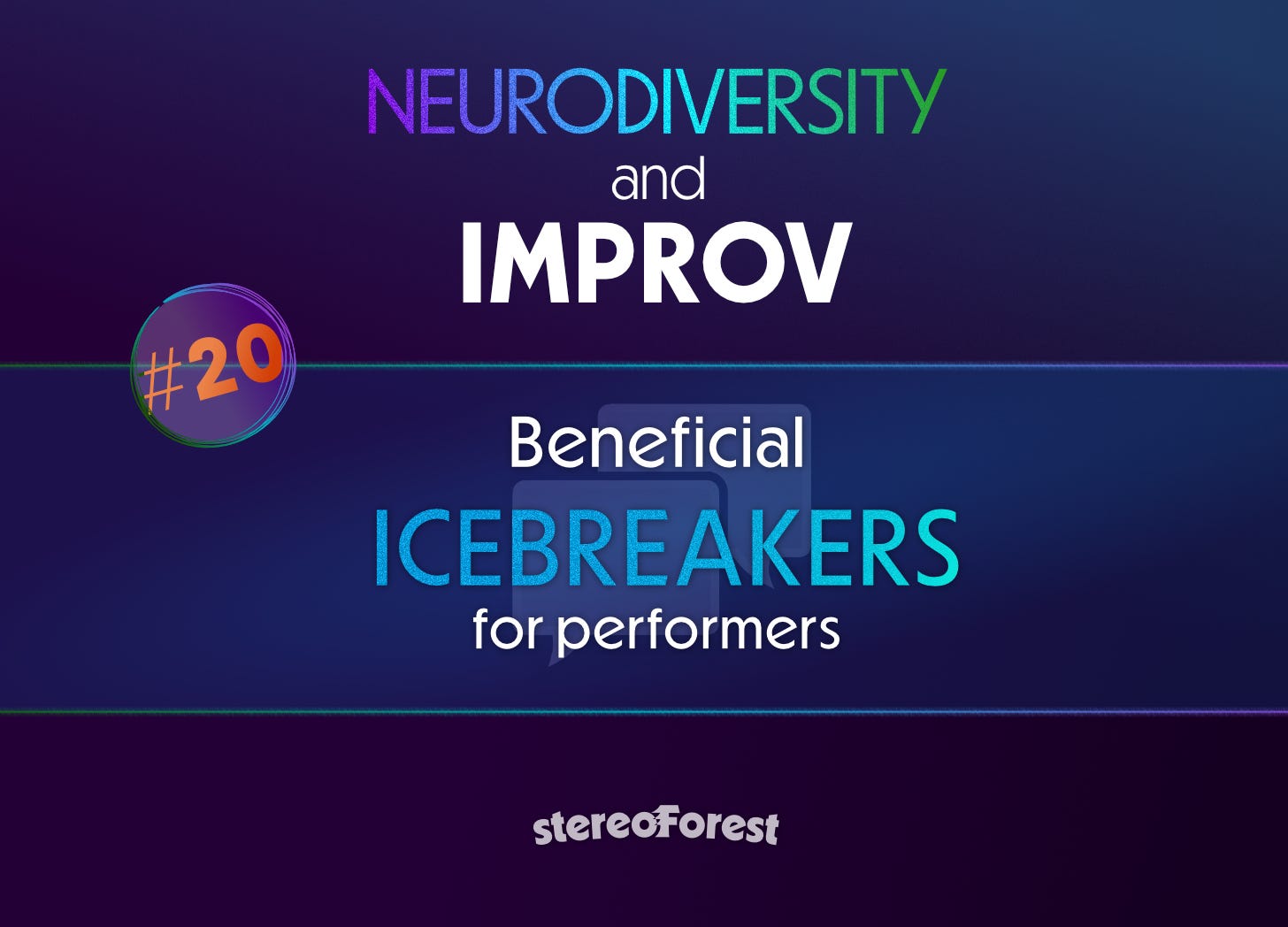Inclusive, beneficial icebreakers for performers
Icebreakers. They're common in an improv class, at the top of a jam, or maybe when a team is just getting to know each other. Some people love 'em, some people hate 'em.
Note: Full written articles are available to paid supporters. This topic will be released for everyone as a podcast episode/transcript next week - yay!
Listen to this article:
Icebreakers. They're common in an improv class, at the top of a jam, or maybe when a team is just getting to know each other.
Some people love them.
Some people hate them.
Some of us have a love/hate relationship depending on the day or the icebreaker in question.
Many of the people who really dislike icebreakers are neurodivergent people, which is why such a seemingly simple thing is getting an episode.
But many students, neurodivergent or not, need icebreakers to feel comfortable in scenes that are in their very near future! Especially when they're in a room with strangers (or near-strangers).
Students might not know they kinda need them, either. Icebreakers might be needed to make a room feel a bit safer, a bit more beneficial, a bit more comfortable.
But some people, especially some of us neurodivergents with communication difficulties, communciation differences, and trauma history feel uncomfortable doing them.
So… what now?
This article reviews what the issues are, why you still need an icebreaker or similar alternative, and a bunch of options to make your icebreakers (and classes or gatherings/events) more inclusive and our spaces as beneficial as possible.
Why do some people hate icebreakers?
There are a number of very valid reasons why icebreakers are disliked by some improvisers.
Being perceived by others can be difficult for a variety of reasons. For example, some improvisers (myself included in this!) have more difficulty "as ourselves" in a group environment than in a scene or as a character revealing "private" information. We know we are misunderstood at a high percentage. I put myself into a character-like persona to make it through an icebreaker. Or teach. It's me… but not. What I say is honest and real, but it’s delivered in some kind of heightened way (masking).
Icebreakers, depending on the task, can be seen as personal (even if you don’t see the prompt as such) - and make a person feel vulnerable.
Participants might feel nervous about thinking fast, on the spot, to "remember" the prompt. Or they are worried about forgetting what they were going to say.
There might be concerns over being "chosen last" - these things can put some people into their school days if that was an issue there, or there are issues around validation and acceptance (bullying history, etc).
Possible triggers may occur, depending on how limited the prompt is. And being triggered can be unexpected. For example, if a student just had a sudden family illness that week, asking "how was your week? What's something that happened?" ... no good. (Wow, I wrote this article before this very thing just happened on my end - and now reviewing/editing after. How timely, yet accurate, me.)
Keep reading with a 7-day free trial
Subscribe to Neurodivergent Minds in Comedy / Neurodiversity in Improv to keep reading this post and get 7 days of free access to the full post archives.





